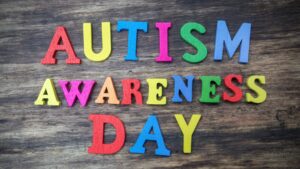If you have a neurodivergent child, loved one, or student, you may have noticed that everyday challenges and demands cause them to experience more anxiety. You may observe general apprehensiveness, difficulty focusing, and avoidance of social encounters. Or perhaps you notice severe psychological distress when they encounter ordinary things and experiences.
Parents and teachers also observe behaviors like repetitive movements, atypical fascinations, or unusual effects in individuals experiencing autism and anxiety. New research advances our understanding of the complexities of autism spectrum disorder (ASD) daily, including anxiety’s impact. Fortunately, Applied Behavior Analysis, also known as ABA therapy, is recognized as a practical approach to managing many complications of ASD, including anxiety.
This blog by ABA Centers of Florida will discuss the relationship between autism and anxiety and the benefits ABA therapy offers. Our goal is to equip parents, educators, caregivers, and neurodivergent individuals with helpful resources that enable them to make informed decisions regarding care through these complex experiences.
By providing valuable insights, recent statistics, and ideas for improving life for the neurodivergent community, we hope this blog enhances mental health outcomes for those in the ASD population and their families.
For more information about ABA therapy with ABA Centers of Florida, visit us here.
What is Autism and Anxiety?
Autism and anxiety are two commonly discussed topics that are often interconnected. Autism is a neurodevelopmental condition frequently impacting social interaction, communication, and behavior. While anxiety, commonly associated with worry or tension, can cause physiological changes in breathing and blood pressure.
However, it’s essential to recognize that anxiety is not fear. In most cases, anxiety is future-oriented and typically focused on diffusing a threat. Fear is generally appropriate and short-lived. Anxiety can be experienced long-term, sometimes with no identifiable cause. To further complicate the diagnostic process, individuals with autism and anxiety cannot always communicate their experiences efficiently, go undetected, or exhibit extreme behaviors.
While research suggests anxiety is not a core characteristic of ASD, anxiety disorders remain the most common comorbid conditions in the neurodivergent population.
Why Do Individuals with ASD Have Heightened Anxiety?
Heightened anxiety, common in ASD, is often due to the challenges these individuals face in social situations and adapting to new circumstances. However, it is vital to recognize that while autism and anxiety share similar features, they are distinct conditions requiring unique approaches. An accurate diagnosis is critical in understanding the individual’s needs and providing appropriate support.
Anxiety in ASD can take many forms, ranging from mild to severe, depending on the individual and their circumstances. Some common anxieties seen in ASD are social anxiety, worry around change or unfamiliar circumstances, and fear of loud noises. Other atypical or distinct anxiety features may include a fear of certain textures, colors, numbers, objects, people, or patterns.
Unlike daily stress or short-term fear around an upcoming experience, clinical anxiety is a medical disorder that constantly hinders functioning.
How Many Individuals with ASD Also Have a Clinical Anxiety Disorder?
Research shows that while anxiety does not occur in all cases, roughly 40% of young people with ASD have clinically elevated anxiety ranges or at least one anxiety disorder, including obsessive-compulsive disorder (OCD). Recognizing and treating anxiety is essential since it can gravely impact life with ASD for individuals and their families.
Comorbid anxiety can sometimes lead to self-injurious behaviors (SIB) and depression. Treatment often leads to better outcomes. In most cases, anxiety may present in various ways at different times in ASD. Here are a few ways anxiety disorders manifest in ASD:
- Specific Phobia/Phobias
- Obsessive Compulsive Disorder
- Social Anxiety
- Separation Anxiety
- Atypical symptoms related to changes in environment and routine
Latest Statistics on the Correlation between Autism and Anxiety
Research to improve our understanding of the link between autism and anxiety shows us incredible things. The latest statistics suggest that individuals with autism are at a higher likelihood of experiencing anxiety than the general population. This correlation is often due to the social challenges and sensory sensitivities characteristic of ASD.
It is essential to recognize that anxiety can massively harm the quality of life for those with autism, so early detection and intervention are crucial. As sciences examine the connection between autism and anxiety, healthcare can accommodate neurodiversity and respond in ways that promote inclusivity and understanding.
How Can ABA Therapy Help Reduce Anxiety in Children and Teens with ASD?
Autism and anxiety often present together. For many neurodivergent children and teenagers, navigating social terrain and sensory experiences can be overwhelming and lead to elevated stress. Thankfully, ABA therapy shows tremendous results in helping to reduce anxiety levels in neurodivergent children and teens.
ABA therapy is an evidence-based science using positive reinforcement to teach new skills and increase positive, more independent behaviors. Through ABA therapy, children often learn coping mechanisms and strategies to manage their anxiety better, leading to a happier and more confident life.
With lower anxiety levels, children and teens with autism can engage more with the world around them and feel a more secure when experiencing new things. Through personalized techniques, ABA therapy supports those on the spectrum in their journey toward a more fulfilling life.
Best Practices for Parents to Deal with Anxiety Symptoms in Their Child on the Spectrum
For parents of children who may experience more anxiety than their neurotypical peers, helping a child manage their stress may require extra effort. While there’s no one-size-fits-all approach to managing anxiety symptoms in ASD children, parents can follow some simple practices that help minimize distress, including:
1) Establishing a Routine
Routine helps to set standard expectations and predictability for a child with ASD. Additionally, the structure can help reduce feelings of overwhelm and uncertainty.
2) Working with Providers who Understand Autism and Anxiety
Work with providers who offer specialized support and guidance related to ASD. Board Certified Behaviors Analysts (BCBAs) and Registered Behavior Technicians (RBTs) hold expertise in autism. They must pass exams to maintain their credentials so their inferences are reliable.
3) Practicing Self-Care.
It’s also important to practice self-care as a parent or provider since being emotionally and physically tired can make supporting a child on the spectrum harder. Spend time each day focusing on your needs and personal goals.
Following these practices, parents can help neurodivergent children manage their anxiety even during more challenging times.
Benefits of ABA Therapy for Alleviating Anxiety in Individuals with ASD
ABA therapy modifies behavior through focused reinforcement, structure, and play-based intervention. ABA therapy teaches individuals with ASD to have more positive interactions and prepare for experiences that may involve new demands. Additionally, ABA therapy helps reduce anxiety by teaching coping skills, positive self-expression, and problem-solving techniques. While always using the least prompting possible, ABA focuses on empowering every child with autism so they can uniquely contribute!
Furthermore, because ABA practitioners tailor ABA sessions to each client’s unique needs and life goals, treatment can help kids stay goal-oriented and motivated, even with anxiety. Doing so ensures clients navigate life’s different chapters. Finally, ABA therapy helps parents learn how best to support their child or teen on the spectrum through all aspects of life, leading to better outcomes for everyone through parent training.
Your Loved One Doesn’t Have to Face Autism and Anxiety Alone!
Anxiety can be an immense challenge for children and teenagers with ASD. Autism and anxiety often impact the entire family. At ABA Centers of Florida, we recognize that anxiety can be a significant obstacle for many. Yet, evidence shows that change is possible and can be long-term.
Our BCBAs and RBTs implement the principles of ABA to help those with autism overcome this adversity. With proper guidance and an optimistic approach, those with ASD can develop the confidence and resilience to handle their anxiety and live more satisfying lives. At ABA Centers of Florida, we harness the power of ABA and compassion to help those touched by neurodiversity achieve their full potential.
Everyone deserves a joyful life full of play and exploration. We are here to help your diverse family achieve it. Contact us at (772) 773-1975 or here for more information about autism care for your neurodivergent child or teenager with ABA Centers of Florida.








